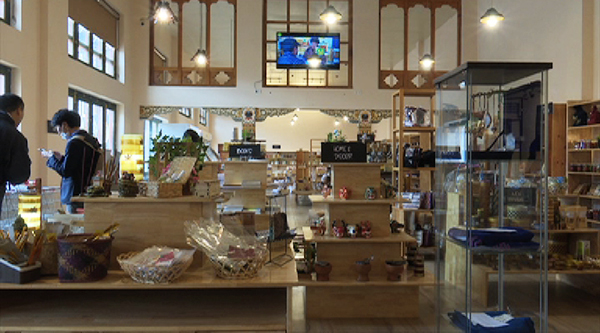 The export of Made in Bhutan Products recorded a substantial decline last year. The recently launched Cottage & Small Industry (CSI) market was unable to tap its full potential due to the pandemic. The projected revenue is estimated to be reduced by almost 90 per cent. However, the Made in Bhutan products have caught the eyes of many local people. The first and the only CSI market in the country recorded an increase of 25 per cent sales increase in the domestic market.
The export of Made in Bhutan Products recorded a substantial decline last year. The recently launched Cottage & Small Industry (CSI) market was unable to tap its full potential due to the pandemic. The projected revenue is estimated to be reduced by almost 90 per cent. However, the Made in Bhutan products have caught the eyes of many local people. The first and the only CSI market in the country recorded an increase of 25 per cent sales increase in the domestic market.
To keep up with the demand for face masks in the domestic market, a fashion studio is now producing face masks in a start-up centre in Thimphu.
“It’s a fashion studio and we focus on making products of Bhutan using Bhutanese textiles. I wanted to start small so I started with face masks. At first, I have been selling my products through social media and the sale wasn’t that good. We had like three to four customers. But when the CSI market gave me the platform my market started improving,” said Dhechen Chodron, the founder of D-chenAtellier.
The CSI market is currently one of the government’s flagship programmes. The project is initiated by the Ministry of Economic Affairs in collaboration with Druksells, an online trade platform that deals in Bhutanese products. The management of the CSI market is taken up by the Druksells team.
“We were starting to focus more on the domestic market and then we established the CSI market. For the local producers, we give them the platform to market and sell their products on both online and retail platform in the CSI market. We have supports from both the buyers and vendors,” said Sonam Chophel, the CEO of the CSI Market.
He added, the restrictions and lockdowns, both regional and international, imposed by the pandemic severely affected the export market disarraying the market’s target sales of Nu 10 M in the first year.
“We have some international importers, they were very hesitant and reluctant to take our products because of the restrictions imposed. So that’s why almost 90 per cent of our exports went down last year,” he added.
With the entrepreneurship culture picking up in the country, the CSI Market has a range of more than 600 local products on the shelves and over 250 enterprises availing the platform. The potential of this market to generate employment and revenue is a given fact, so what is needed is a robust support system that doesn’t just cover the financial aspect but also facilitate the entire trade channel with an efficient entrepreneurial ecosystem.
Yeshi Dorji








